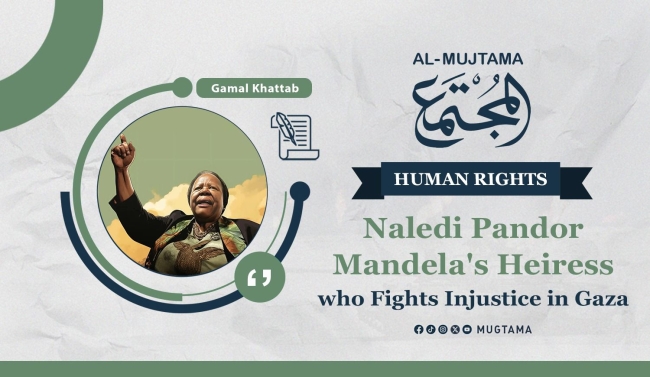Naledi Pandor Mandela's Heiress who Fights Injustice in Gaza Featured
Grace Naledi Mandisa Pandor, the Minister of International Relations and International Cooperation of South Africa, shared how pro-Israel groups targeted her with fake news and insults, even involving her family. This came after the International Court of Justice ruled that Israel must prevent harm to Palestinians in Gaza. Pandor, a strong advocate for human rights and the Palestinian cause, has a long history of political involvement, inspired by her father's association with Nelson Mandela.
Born on December 7, 1953, Pandor initially pursued an academic career before entering politics. She joined the African National Congress, Mandela's party, and quickly rose through its ranks, becoming a prominent figure in Parliament. Pandor served as Minister of Education, Science and Technology, and the Interior before assuming her current role as Minister of Foreign Affairs in 2019.
Pandor's strength and beliefs were further enhanced by her conversion to Islam after marrying Sherif Joseph Pandor in 1977. She draws inspiration from Mandela's legacy and continues to fight for justice and equality. Committed to education and human rights, Pandor's journey in politics reflects her deep-rooted values and determination to make a difference.
Since becoming foreign minister, Pandor has gained a reputation for her firm stances, such as her refusal to arrest Russian President Vladimir Putin during his visit to South Africa and her criticism of the International Criminal Court for its treatment of leaders accused of violating international law.
This stance strengthened South Africa's relationship with Russia and the BRICS economic group. Pandor received the Grand Star of Jerusalem in 2022 in recognition of her support for the Palestinian cause, with the Palestinian Ambassador praising her for denouncing Israel as an apartheid state and supporting justice and international law.
The struggle against apartheid in South Africa served as inspiration for the Palestinian resistance, with Nelson Mandela being a key figure in both movements. Mandela's support for a Palestinian state was evident in his actions and his wearing of the Palestinian keffiyeh. Despite Israel's public condemnation of apartheid policies, a political and military alliance existed between Israel and South Africa in the 1970s, including secret meetings that led to military deals, including the potential sale of nuclear warheads.
Pandor's actions and statements reflect a commitment to justice, international law, and solidarity with oppressed peoples, in line with the legacy of Mandela and the ongoing struggle against oppressive regimes.
In his book "What Do We Call Palestine?", French journalist Alain Gresh discusses the strange symmetry between the apartheid regime in South Africa and the current leaders of Israel. Despite a history of anti-Semitism, the white population in South Africa admires Israel and sees it as a political and military partner. However, the South African government, post-apartheid, aligns itself with Palestine and calls for the implementation of international law to resolve the conflict.
South African Foreign Minister Pandor emphasized the need for justice, including the establishment of an independent State of Palestine with East Jerusalem as its capital. She denounced Israel's actions against Palestinians, both in Gaza and within Israel, as crimes against humanity. Pandor and her team are actively involved in legal proceedings against Israel at The Hague Court. Their stance is not rooted in anti-Semitism or hatred towards Israel, but in support of justice and peace for the Palestinian people.
Naledi Pandor, a prominent figure in South Africa, declared support for Palestinians and criticized Israeli aggression. She highlighted the historic ties between South Africa and Palestine and emphasized the fight against colonialism and racism. Pandor led South Africa in filing a lawsuit against Israel for genocide and violating international obligations, including severing relations with Israel. She called for the arrest of dual South African-Israeli nationals returning from serving in the Israeli army.
Pandor's strong stance on the Palestinian issue was evident during a conference at the Al-Quds Mosque in Cape Town, where she warned dual nationals of consequences upon their return. Her actions symbolize global opposition to Israeli aggression on Gaza, showcasing her leadership on the international stage. Pandor's commitment to justice and rejection of colonialism resonated with many, solidifying her reputation as a champion for Palestinian rights.


